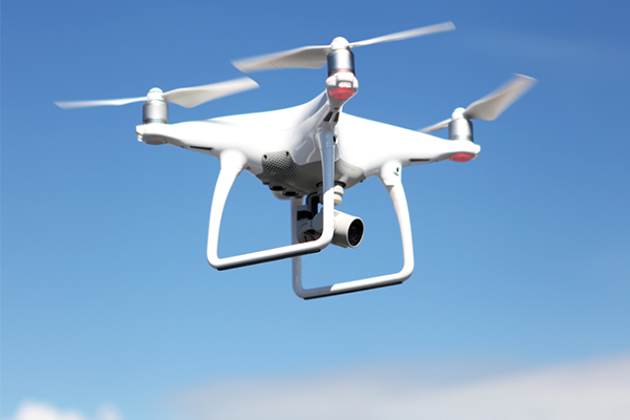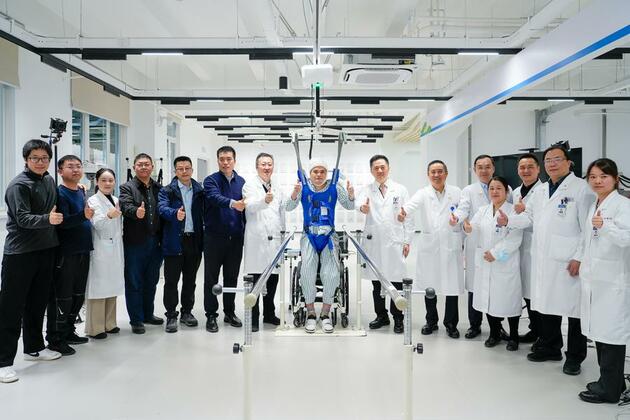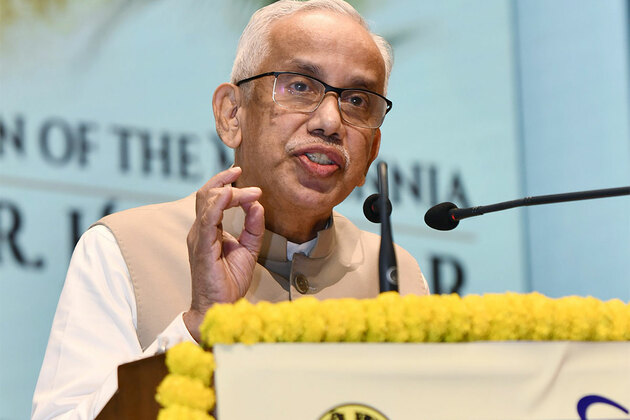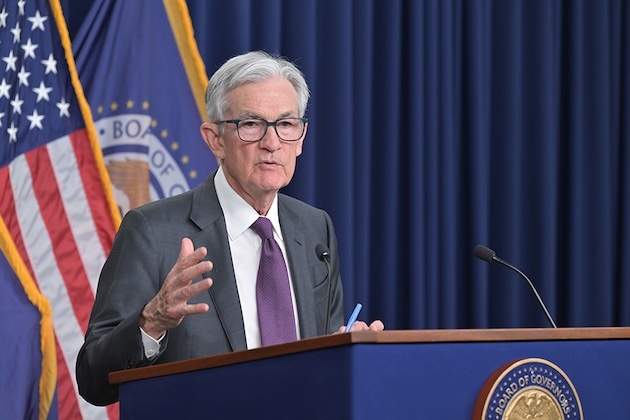Dominic Cummings: how the UK ignored evidence that the virus is airborne
The Conversation
28 May 2021, 00:13 GMT+10
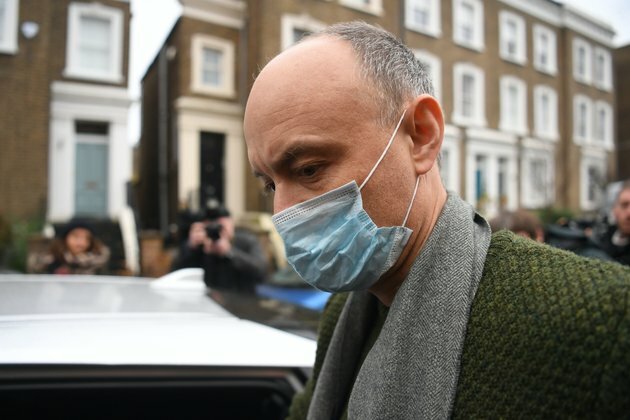
"I think we are absolutely fucked. I think this country is heading for disaster. I think we're going to kill thousands of people." According to Dominic Cummings, those were the words spoken by the then deputy cabinet secretary Helen MacNamara on March 13 2020 when she realised that the UK had no plan for dealing with the unfolding COVID crisis.
And it's not over yet. The UK's tally of COVID-19 cases - undoubtedly an underestimate - is now 4.5 million, with over 127,000 COVID deaths. Between half and 1 million people, including 122,000 healthcare workers and 114,000 teachers - give or take a few tens of thousands - remain too sick to work full time. Highly contagious mutant variants, which entered the country recently through ineffective border controls, are spreading exponentially, causing new local outbreaks. Effective prevention measures, such as mask mandates in secondary schools, are being prematurely rolled back. The UK's third wave is predicted to be small but could yet dwarf the previous two waves.
Boris Johnson's former chief adviser's warts-and-all account of political backstage events during February and March 2020, raises political questions, such as what the prime minister knew and when, as well as scientific ones, such as how the UK government's Infection Prevention and Control team could have denied for so long that SARS-CoV-2 is airborne, thereby delaying the introduction of effective measures to contain its spread.
At what point, for example, would it have been reasonable to conclude, as Cummings did this week, that hand-washing and surface cleansing would be ineffective unless accompanied by additional measures to control airborne virus?
The day before the alleged quote from a senior UK government official, the World Health Organization declared COVID-19 a pandemic. What scientific evidence was there at that time that the virus spreads through the air?
Two days earlier, on March 9 2020, the Japanese government had introduced its "3Cs policy": avoid closed spaces, crowded places and close contact, especially when talking or singing. These three measures were based on detailed analysis of outbreaks using not just prospective contact tracing (to identify people who may have caught the disease from an infected individual) but retrospective tracing (to find how that individual became infected).
This allowed public health experts to hypothesise about a possible airborne route of transmission. The Japanese government was honest with the public, explicitly invoking the precautionary principle:
This prompt and cautious policy, based on preliminary but rigorous science, helped ensure that Japan's first wave was tiny. Its death toll is orders of magnitude less than the UK's. The tone of the Japanese government's public health messaging in the early weeks of the pandemic contrasts markedly with Cummings' description of Boris Johnson who, he alleges, behaved "like a shopping trolley smashing from one side of the aisle to the other".
It's not too late
Putting aside the important question of how far Cummings' account of chaos at the heart of government was inflated by the desire to settle scores with his former colleagues, the prime minister now needs to get a firm grip on this deadly virus. Fourteen months after Japan first introduced its 3Cs policy, it's high time the UK introduced measures that did more to acknowledge the evidence on the airborne nature of this virus and that will help prevent a catastrophic third wave.
First, effective ventilation of indoor spaces should be prioritised and resourced. The level of carbon dioxide (CO₂) in room air is a good proxy for how much the air is being shared because we breathe it out. All businesses, schools and other public buildings should obtain and use CO₂ monitors and ensure that levels remain in the healthy range (400-700 parts per million). In the longer term, building design regulations need to reflect the risks of airborne infections.
Second, physical distancing should continue to be enforced. Maintaining two metres distance protects against both droplet and airborne modes of transmission, since most airborne spread occurs via close contact - think of someone exhaling smoke. Note, however, that the longer people remain in an unventilated room, the more concentrated any airborne virus will become and the farther it will spread.
Finally, masking in indoor spaces, which works moderately well against both droplet and airborne transmission, should continue. To reduce airborne transmission, the mask must fit snugly with no gaps around the sides for air to escape. For full protection against airborne virus, a high-grade mask, such as an FFP3 or N95 respirator, must be worn. Indeed, Boris Johnson might like to reconsider the open letter I and my colleagues sent him in February this year requesting such protection for healthcare workers.
In sum, the emerging consensus on the importance of airborne spread requires coordinated measures at individual, organisational and national policy levels to make spaces safe. It is a better-late-than-never opportunity for the prime minister to demonstrate leadership.
Author: Trish Greenhalgh - Professor of Primary Care Health Sciences, University of Oxford 
 Share
Share
 Tweet
Tweet
 Share
Share
 Flip
Flip
 Email
Email
Watch latest videos
Subscribe and Follow
Get a daily dose of Japan Herald news through our daily email, its complimentary and keeps you fully up to date with world and business news as well.
News RELEASES
Publish news of your business, community or sports group, personnel appointments, major event and more by submitting a news release to Japan Herald.
More InformationAsia Pacific
SectionFAA to propose new rules for expanding drone deliveries
SEATTLE/WASHINGTON D.C.: U.S. Transportation Secretary Sean Duffy said last week that the Federal Aviation Administration (FAA) is...
Brain-spinal interface offers new hope for paralyzed patients
A patient who has received a surgery featuring an innovative brain-spinal interface technology poses for a group photo with the research...
India's renewable hydrogen developers bank on cost advantage in lackluster global market: S&P report
New Delhi [India], March 20 (ANI): India's renewable hydrogen developers hope cost advantages and offtake interest will help kickstart...
Andhra Pradesh: Gov Abdul Nazeer calls on State's people to observe Earth Hour on March 22
NTR (Andhra Pradesh) [India], March 20 (ANI): Andhra Pradesh Governor S Abdul Nazeer has called on people of the State to participate...
Delhi HC rejects maintenance plea; notes intentional joblessness, alimony chat
New Delhi [India], March 20 (ANI): The Delhi High Court, while rejecting a maintenance plea, recently underscored a significant principle:...
China detains two protestant church members for "cult" activities
Beijing [China], March 20 (ANI): China has arrested two members of a Protestant church in the eastern province of Anhui for refusing...
Business
SectionAudi to cut 7,500 jobs in Germany by 2029 in cost-cutting move
BERLIN, Germany: Audi has announced plans to cut up to 7,500 jobs in Germany by 2029 as part of a broader restructuring aimed at reducing...
FAA to propose new rules for expanding drone deliveries
SEATTLE/WASHINGTON D.C.: U.S. Transportation Secretary Sean Duffy said last week that the Federal Aviation Administration (FAA) is...
Wall Street rallies on Federal Resrve decision
NEW YORK, New York - U.S. stocks rose Wednesday despite the U.S. Federal Reserve signalling a potential slowdown in the U.S. economy,...
Trump repeals $17.75 minimum wage rule for federal contractors
WASHINGTON, D.C.: President Donald Trump has reversed a Biden-era executive order requiring businesses with federal contracts to pay...
UBS CEO Ermotti to earn $17 million in 2024, report says
FRANKFURT, Germany: UBS CEO Sergio Ermotti will receive a pay package of just over 15 million Swiss francs (US$17 million) for 2024,...
France calls for talks as EU bourbon tariffs backfire
PARIS, France: French Prime Minister Francois Bayrou acknowledged over the weekend that the European Union may have miscalculated by...

